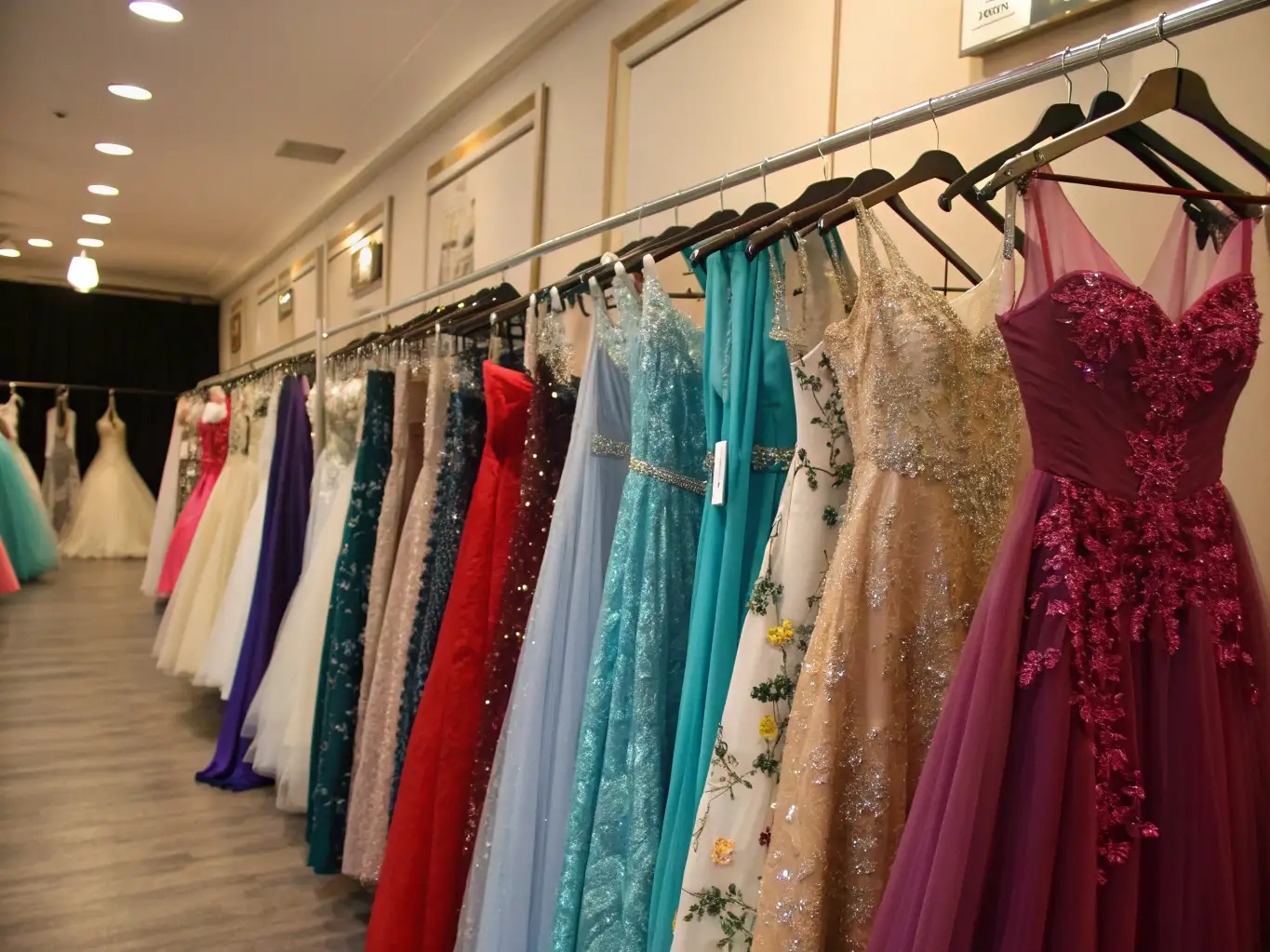Finding trustworthy wholesale dress suppliers is essential for building a reliable, profitable fashion business. With the rise of global sourcing platforms and digital trade, buyers must be more vigilant than ever to avoid scams and ensure consistent quality. Verified suppliers are key to stable inventory, fair pricing, and long-term brand growth.
The best way to find legitimate wholesale suppliers is to use verified online platforms1 (like Alibaba, Faire, FashionGo), attend trade shows2, check supplier documentation3, request samples, and establish clear communication and contracts. Systematic verification prevents costly mistakes and builds confidence in your sourcing process.
Drawing on years of experience with international dress manufacturers and platforms, here’s a detailed, actionable guide for sourcing legitimate wholesale dress suppliers.
Start with Trusted Wholesale Platforms and Trade Directories
The first step to finding genuine suppliers is leveraging established, vetted platforms and industry resources.
Global B2B marketplaces, trade directories, and industry events provide curated lists of suppliers, increasing your chances of sourcing authentic, reliable dress wholesalers.
Are sites like Alibaba, Faire, and FashionGo safe for dress sourcing?
Yes, these platforms are generally safe, especially when you use their verification features, payment protection systems, and supplier ratings. Alibaba’s "Gold Supplier" status, Faire’s verified brands, and FashionGo’s brand applications help filter out unreliable vendors.
Leading Wholesale Platforms
| Platform | Strengths | Best Practices |
|---|---|---|
| Alibaba | Vast selection, supplier ratings | Look for Gold/Verified status, trade assurance |
| Faire | Curated brands, net terms, easy returns | Read reviews, check badge programs |
| FashionGo | Fashion-focused, trend-driven suppliers | Confirm brand authenticity |
How can trade shows or industry databases help you connect with verified suppliers?
Industry trade shows (like MAGIC Las Vegas, Texworld Paris, Canton Fair) allow face-to-face vetting and direct negotiations. Trade directories from chambers of commerce, industry associations, or export councils list only officially registered businesses, reducing risk.
Offline and Directory Sourcing
| Method | Benefits | Example Resources |
|---|---|---|
| Trade Shows | Meet in person, inspect samples, negotiate | MAGIC, Texworld, Canton Fair |
| Trade Directories | Official records, contact details | Chamber of Commerce, SGS, Dun & Bradstreet |
Red Flags to Watch Out For When Dealing with New Dress Suppliers
Awareness of potential scams and unreliable suppliers is crucial before entering any agreement.
Scam risks include fake websites, unclear business terms, non-existent contact information, and pressure for upfront payments. Recognizing these red flags can save you from costly losses.
What are common scams and how do you spot them early?
Common scams include fake companies, bait-and-switch tactics, and non-delivery after payment. Spot these by checking for professional websites, real business addresses, phone numbers, company registration, and consistent online reviews.
Supplier Scam Red Flags
| Red Flag | What It Means | Action to Take |
|---|---|---|
| No physical address | Possible fake or virtual company | Insist on business registration |
| Only accepts wire transfer | Risky, hard to trace funds | Use secure payment platforms |
| Unrealistically low prices | Likely bait-and-switch or counterfeit | Cross-check market averages |
| Poor communication | May indicate a scam or unreliable supplier | Test response times, ask for calls |
Should you avoid suppliers with unclear MOQs, vague contacts, or upfront fees?
Yes. Unclear minimum order quantities (MOQs), vague contact information, or large upfront fees without contracts are classic warning signs. Legitimate suppliers are transparent about terms, provide business credentials, and offer sample orders.
Sourcing with Caution
| Warning Sign | Risk Implication | Safer Alternative |
|---|---|---|
| Unclear MOQ | Hidden costs, unreliable supply | Clarify terms before ordering |
| No contract offered | Lack of legal recourse | Always sign a formal contract |
| High upfront fees | Possible fraud | Negotiate small deposit/sample fees |
Supplier Verification Tips: Documents, Samples & Communication
Systematic verification is key to building trust and avoiding costly errors.
Always request and check official business documents, order product samples, and establish regular communication before committing to bulk orders.
What certificates (like business licenses, VAT numbers, or ISO) should a supplier provide?
Legitimate suppliers should provide business licenses, tax IDs (like VAT numbers), and any industry-specific certifications (ISO 9001 for quality management, BSCI or Sedex for ethical standards).
Key Verification Documents
| Document | What It Proves | How to Verify |
|---|---|---|
| Business license | Legal registration | Cross-check with government database |
| VAT/tax number | Tax compliance | Verify with tax authorities |
| ISO/BSCI/Sedex | Quality or social compliance | Ask for recent certificates, confirm with issuer |
Why is requesting samples or a factory video call essential before bulk ordering?
Samples allow you to check quality, sizing, and packaging firsthand. Video calls provide real-time proof of production facilities, staff, and equipment—reducing the risk of fake or “trading only” suppliers.
Pre-Order Supplier Checks
| Verification Step | Benefit | Reduces Risk Of |
|---|---|---|
| Sample order | Quality, sizing, fabric checks | Poor quality or misrepresentation |
| Factory video call | Proves real factory, staff, machines | Fake companies or middlemen |
Build Long-Term Relationships with Wholesale Dress Suppliers
Long-term supplier relationships boost reliability, flexibility, and pricing advantages over time.
Negotiate clear contracts and terms upfront, maintain consistent orders, and provide feedback to encourage loyalty, better terms, and reliable supply.
Should you negotiate clear terms, contracts, and exclusivity in advance?
Always. Negotiating contracts—including payment terms, delivery timelines, quality standards, and, if possible, exclusivity—sets clear expectations and reduces disputes.
Key Contract Elements
| Contract Clause | Importance | Tips |
|---|---|---|
| Payment & delivery terms | Defines cash flow, avoids delays | Use milestone payments |
| Quality standards | Specifies acceptable levels | Detail in contract, use QC checklists |
| Exclusivity (if desired) | Protects your niche or territory | Negotiate for best-selling styles |
How do consistent orders and feedback help build supplier loyalty and pricing flexibility?
Suppliers value buyers who provide regular business and constructive feedback. This often results in better pricing, priority service, and willingness to accommodate custom requests or flexible MOQs.
Building Supplier Loyalty
| Action | Supplier Benefit | Your Advantage |
|---|---|---|
| Consistent ordering | Stable business, cash flow | Better pricing, priority service |
| Constructive feedback | Helps improve product quality | Fewer defects, stronger partnership |
Conclusion
Finding legitimate wholesale dress suppliers requires a systematic approach—leveraging trusted platforms, demanding proper documentation, requesting samples, and establishing clear communication. Vigilance against scams and red flags, combined with building strong, contractual supplier relationships, ensures long-term sourcing success and brand stability in the competitive wholesale dress market.
-
Exploring verified online platforms can help you find trustworthy suppliers, ensuring quality and reliability for your business. ↩
-
Trade shows offer direct access to suppliers, allowing for face-to-face interactions and better vetting of potential partners. ↩
-
Understanding the necessary supplier documentation is crucial for verifying legitimacy and avoiding scams in wholesale sourcing. ↩






